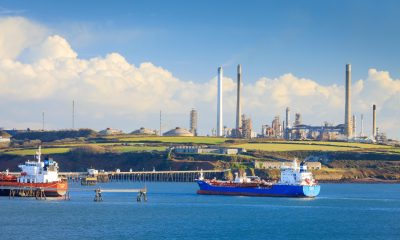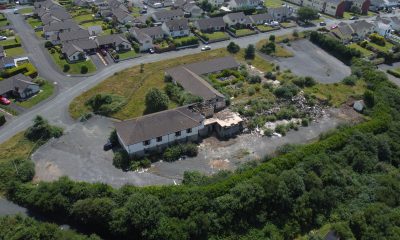Climate
How Welsh residents can use clean energy in their homes
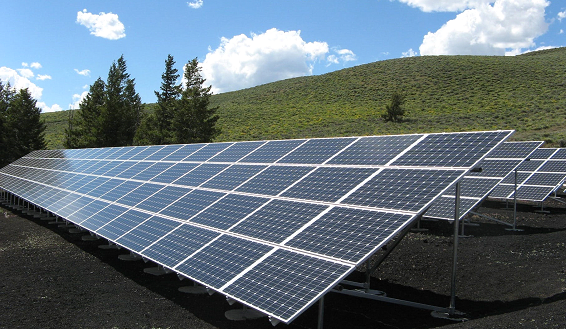
In the next decade, Wales aims to reach 100% of its internal electricity demands through renewable sources. The climate change minister remains at the forefront of ensuring sustainable energy sources in the country.
One way Welsh residents can join in the effort to use clean energy is by adopting renewable energy sources in their homes. These renewable energy sources provide clean and efficient energy without negatively impacting the environment.
Furthermore, these eco-friendly energy sources save money spent on electricity. It aids Welsh residents living in sustainable homes while saving the environment. Let’s dive deep into finding how to transform your houses into energy-efficient and sustainable homes.
What Is It?
Clean energy is pure energy extracted from nature without any pollutants produced with its usage. This energy is highly beneficial for the environment as it doesn’t leave behind any pollutants. It harnesses nature’s power with sources including:
⦁ Sun energy
⦁ Wind
⦁ Water
⦁ Air
Unlike traditional, clean energy sources don’t release harmful pollutants into the air. Green energy, sourced from natural elements, has a key distinction.
Renewable energy from these clean sources comes from continually replenished resources. Thus, it ensures they never run out, unlike non-renewable sources like fossil fuels.
The essence of clean energy is generating power without any potential harm to the environment for citizens.
Choosing clean energy is good for the environment. It helps protect Wale’s natural resources and lowers the chances of environmental disasters.
Because Wale’s government invests heavily in clean energy sources, they can create stable power supplies, strengthening the country’s energy security.
How to Use Clean Energy Sources in Homes
Welsh residents are quickly adopting clean energy sources in their daily routines. Here is a look at some different clean energy sources for Welsh citizens to incorporate:
- Rooftop Solar Panels
The most common source of renewable energy is solar. It includes mounting solar panels on your rooftop to utilize the sun’s energy that gets converted into power. The more solar panels mounted on your rooftop, the more power it generates.
Additionally, homeowners can invest in lithium batteries as storage backups during nighttime or cloudy days. It ensures a continuous energy supply in your home, enough to power basic home appliances.
Homeowners can contribute the surplus electricity to the grid and earn compensation. It ensures a steady supply of energy in your house. This is the best option for users looking to homestead upcountry. - Tubular Skylights
Sometimes, you need to light up your house during the day. Clustered homes without a sufficient supply of natural light depend on lightning. It leads to increased energy bills and carbon footprint.
A natural way to light up your homes during sunny days is through these innovative tubular skylights. These skylights don’t create electricity but redirect free natural light into your home.
It’s a highly dependable system similar to a reliable paper writing service online since you know what you’re signing up for. It contains a dome of metal tubes running between the dome on the roof, with the diffuser mounted on the ceiling.
The inner tubing has a reflective coating reflecting natural sunlight into your home. These systems are easy to install. Also, they are highly rigid to fit into small spaces. Unfortunately, they tools can’t work during nighttime. - Wind Turbine
Wind turbines are an underrated source of clean energy for homeowners. Especially for ones looking for sustainable living options, harnessing wind power that converts kinetic energy into electricity. Thus, this reduces homeowner’s dependence on fossil fuels.
The market is full of small wind turbines suited for residential applications. Hence, homeowners can choose their preferred wind turbine size depending on their energy needs.
Moreover, most wind turbines occupy a maximum of 10 or 20 square feet of ground space, thus making them viable options for small residential homes. Unlike solar power, these turbines can generate electricity day and night on sunny and cloudy days. - Solar Water Heating
People in Wales are very interested in solar water heating systems because they are easy to use. These systems change the sun’s free energy into hot water. The good thing is that when experts set them up, they don’t need much looking after them.
Solar water heating systems comprise panels and tubes that gather solar energy, converting sunlight into heat.
Installing these systems ensures a steady supply of hot water throughout the year. To cope with winter, adding a boiler or immersion heater is necessary. Moreover, homeowners benefit from lower energy bills since solar energy is free.
Additionally, using solar water heating systems helps reduce one’s carbon footprint by lowering carbon dioxide emissions, contributing to a healthier planet.
Future of Wales’s Energy Consumption
In Wales, the future looks promising for sustainable living. The government is determined to satisfy all electricity needs with renewable sources. People generally agree that completely relying on renewable sources is better than relying on fossil fuels.
As Wales’ population keeps expanding, we see higher energy demand. The solution is turning to renewable sources and clean energy to meet this growing need sustainably.
The change to clean energy is precedented by local authorities crafting policies necessitating the usage of renewable energy. With more areas driving towards becoming energy-sufficient, governments and corporations are leading the way in fighting for renewable power.
Our dependence on fossil fuels for years has significantly impacted the climate. We are experiencing the effects of these practices, with global warming becoming a major talking point on the global stage.
Clean energy guarantees an avenue to alternate fossil fuels. The market has yet to fully explore the possibility of relying on renewable sources for daily demands. However, the conversation is happening at a rapid rate.
Final Takeaway
Wales began utilizing renewable energy to meet its internal electricity demands by 2035. Hence, locals should start opening up to sustainable homes relying on clean energy. These options are sustainable ways homeowners can incorporate their energy sufficiency without any adverse climate impacts.
Business
The White Hart Inn, St Dogmaels, set to make changes

A Pembrokeshire community pub, recently hailed as one of the most friendly in Britain, has been given the go-ahead to install solar panels by county planners.
The White Hart Inn in St Dogmaels was ranked second friendliest pub in the UK in a study by security experts Get Licensed, which looked at Tripadvisor reviews and median crime scores around each pub to find the friendliest in the UK.
The 250-year-old White Hart, on Finch Street, reopened as a community pub in 2021 following a campaign after it closed in May 2019 when the last landlords decided to refocus to other activities.
The White Hart Community Inn Ltd was formed as a Community Benefit Society and a community share offer launched with the guidance of the Wales Co-operative Centre.
Two years of fund-raising and campaigning has seen enough money raised through individual community shares purchases together with financial support from the European Regional Development Fund through the Welsh Government via the Social Business Growth Fund administered by Social Investment Cymru at WCVA, alongside a grant from Pembrokeshire County Council.
An application was recently submitted to Pembrokeshire County council by White Hart Community Inn (St Dogmaels) Ltd to install solar panels at the historic pub.
The proposals were supported by St Dogmaels Community Council, which said it “fully supports the application for the installation of photovoltaic panels”.
A statement in support of the scheme added: “[The community council] acknowledges the importance of sustainable energy solutions and believes that this project aligns with a commitment to environmental responsibility and reducing carbon emissions within the community.
“It believes that the benefits to the local business, the environment, and the wider community, in the retention of this business, far outweigh any potential drawbacks. It urges the planning authority to approve this application, with any necessary conditions to ensure the character of the Conservation Area is respected.”
The application was conditionally approved by planners.
Receiving the recent Get Licensed award, the White Hart Inn received a top score of five on Tripadvisor, and 66.67 per cent of its reviews highlighted the pub’s ‘friendly’ and ‘welcoming’ atmosphere.
The local area also has a low crime rate, with a median score of 609 out of 1,000.
A total of 39 crimes were reported in 2024.
Climate
New community wind turbine set to be built near Fishguard
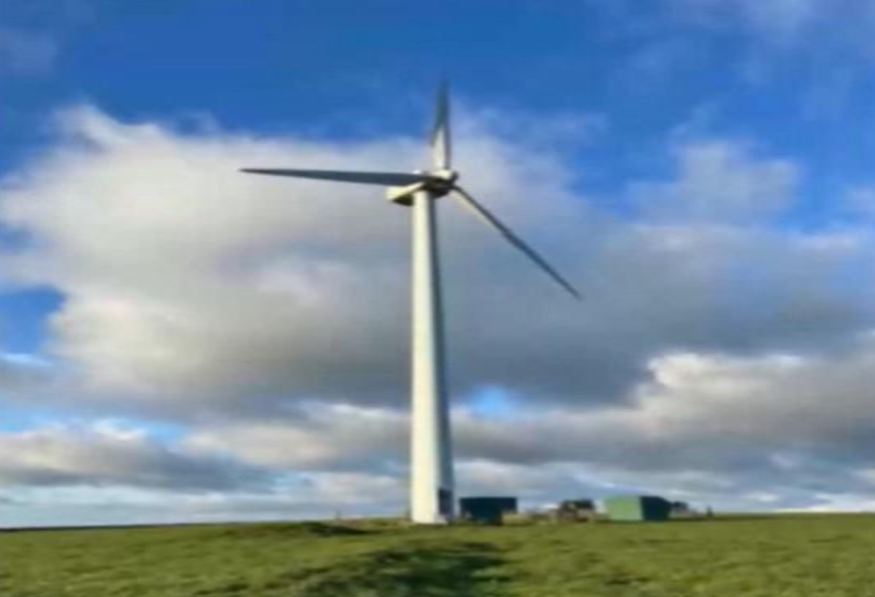
A CALL to replace a Pembrokeshire community wind turbine which has raised more than £76,000 for local groups with a larger one has been backed once again despite a second recommendation to refuse.
In an application before Pembrokeshire County Council’s March planning committee meeting, Abergwaun Community Turbine Ltd, through agent Machynlleth-based Dulas Ltd sought permission for a larger turbine to replace the existing Abergwaun Community Turbine.
The proposed turbine, in a pasture field at Trebover Farm, to the south of Fishguard, would be 67m tall, the existing 2015 one – granted on appeal – being 45 metres.
In supporting statements, parent company Transition Bro Gwaun said: “The Community Climate Fund (CCF) is the mechanism by which Transition Bro Gwaun (TBG) is fulfilling our ambition of funding projects in Fishguard, Goodwick and across North Pembrokeshire, using income from the community wind turbine.
“The core themes for grants are climate change mitigation and adaptation, enhancement of biodiversity and improvements to community resilience through promotion of community engagement and resource sharing.”
Profit generated by sale of electricity from the turbine is split 50:50 between TBG and Parcy-Morfa Farms Ltd through the jointly-owned trading arm, Abergwaun Community Turbine, with community grants awarded through TBG’s Community Climate Fund, amounting to £76,036 to date.
2024 awards of £20,917 were made to six projects, including Theatr Gwaun, Parc Cerrig Growers, Caerhys Organic Community Agriculture, and Nevern Valley Veg.
The scheme was recommended for refusal on the grounds including “significant detrimental visual impact” on the area, “including areas of high sensitivity in the Pembrokeshire Coast National Park and in Fishguard,” on the Conservation Areas of Goodwick, Fishguard and Lower Town, Fishguard.
The scheme had previously been ‘minded to’ backed at the January planning committee, against officer recommendations for refusal, meaning it returned to a later committee for ratification after a ‘cooling-off’ period, this time the March meeting.
At the March meeting, members heard previous concerns by the nearby national park were no longer being made, with Andy Anderson of Scleddau Community Council speaking in favour of both the local community benefits – including funding for solar panels on the local football club – and the community being “well used” to the existing turbine.
Agent Paul Cowley said part of the application for the larger turbine was the existing machine showing signs of gearbox wear, and the proposal helping the county meet its ‘net zero’ green energy target.
Moving approval, Cllr John T Davies said it was “significant” the national park was no longer raising concerns, attempting to allay noise concerns made at the meeting by local resident Neil Morris, by saying larger turbines were less of a concern as they rotated less.
A voice of concern, however, was Cllr Brian Hall, who suggested turbines in his own ward had affected property values by as much as £100,000.
The application to approve, against officer recommendations, was passed by 10 votes to three, with one abstention.
Climate
Solar farm powering up to 3,300 Pembrokeshire homes delayed
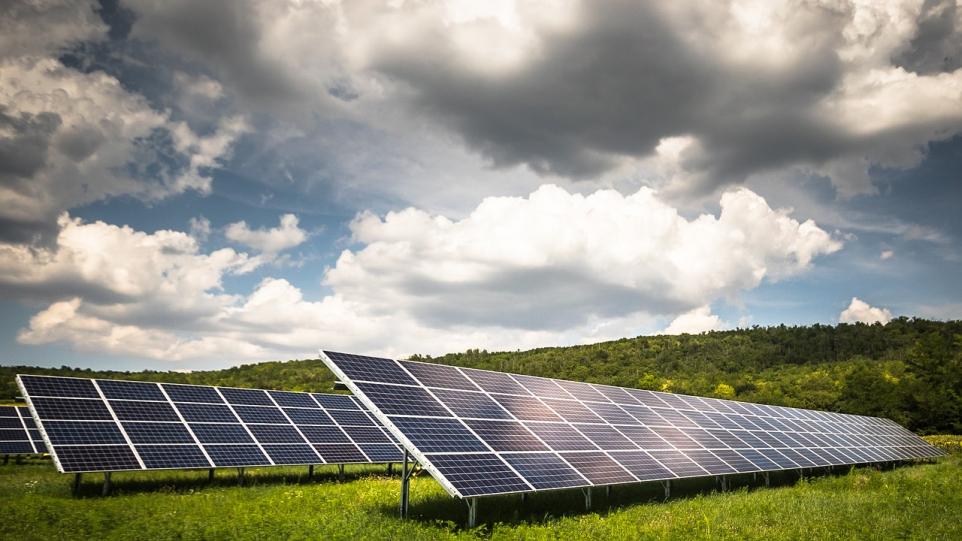
A PEMBROKESHIRE solar farm scheme, which would provide power for nearly 3,300 homes, has been put on hold once again, after previously being deferred for a site visit.
In an application listed at Pembrokeshire County Council’s planning committee meeting of March 18, members were recommended to approve a scheme by Wessex Solar Energy (WSE Pembrokeshire Ltd) for a 9.99MW solar farm and associated works at Lower Nash Farm, near Pembroke Dock.
The proposed scheme would be spread over three fields, amounting to approximately 14 hectares with some 25,000 PV panels on site, some 120 metres from the national park.
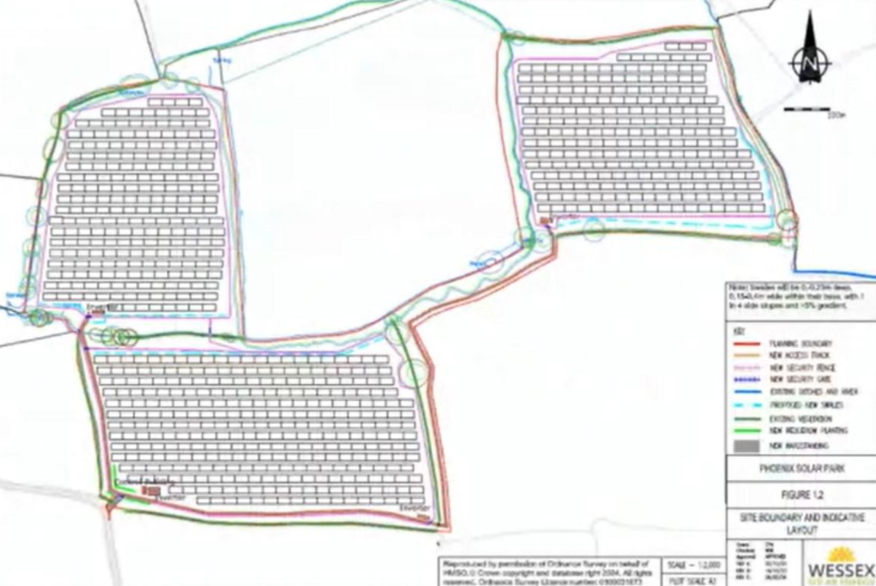
The scheme was previously deferred from the February meeting so members could visit the site after concerns were raised about the loss of the most valuable agricultural land.
The development, some of it on Best and Most Versatile (BMV) Agricultural land, would provide approximately 3,296 households with renewable energy annually, members have previously heard.
A larger 22MW scheme covering 34.25ha was previously refused in 2021 due to the effect on BMV land.
Planning Policy Wales (PPW) requires that BMV agricultural land “should be conserved as a finite resource for the future with considerable weight given to protecting it from development,” adding: “Such land should only be developed if there is an overriding need for the scheme and either previously developed land or land in lower agricultural grades are unavailable.”
Welsh Government Soil Policy & Agricultural Land Use Planning Unit has objected to the latest scheme on BMV grounds, saying the return to agriculture as BMV agricultural land is “…seldom practicable”.
Four objections to the scheme were received, with local community council Cosheston raising concerns about the use of BMV land.
At the February meeting, agent Charlotte Peacock was questioned about the use of the BMV land by committee chair Cllr Simon Hancock, who said: “Farming and agriculture are fundamental to the security of this country; the way that the population is increasing we really need to ensure farmland is protected.”
The agent said the farmer landowner would receive a guaranteed income which would be more reliable than crop values, adding: “The greatest threat to future security is climate change, the single biggest threat to our output of crops.”
Local member Cllr Tessa Hodgson, as a public speaker, successfully called for a site visit before any decision was made saying it was “surely better to use poorer land and brownfield sites” for such developments,” adding: “Does the permanent loss of prime agricultural land outweigh the benefit of renewable energy?”
At the start of the March meeting, members were told the scheme had been temporarily withdrawn due to issue with the publicity of an environmental statement accompanying the application; the proposal expected to now be considered at the April meeting.
-

 Charity6 days ago
Charity6 days agoEmergency services unite for charity at Pembroke Dock Fire Station
-

 Sport6 days ago
Sport6 days agoKildunne hat-trick rips Wales apart in record-breaking Six Nations clash
-

 Community7 days ago
Community7 days agoTenby comes alive with eccentricity as Steampunk Festival returns in style
-

 Politics7 days ago
Politics7 days agoWelsh ministers ’embarrassed’ over Crown Estate devolution
-
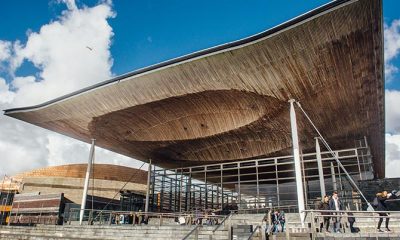
 Community7 days ago
Community7 days agoNRW criticised over ‘very little empathy’ on future of visitor centres
-
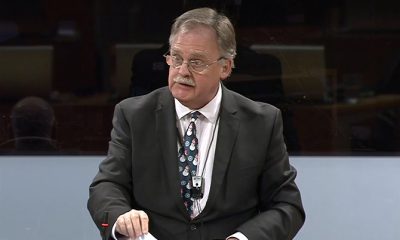
 Charity7 days ago
Charity7 days agoCall for long-term cancer strategy as 9,000 wait too long for treatment
-

 Health7 days ago
Health7 days agoSenedd supports ‘scores on the doors’ for care homes
-

 Education6 days ago
Education6 days agoSupported employment learners take off on airport adventure


















